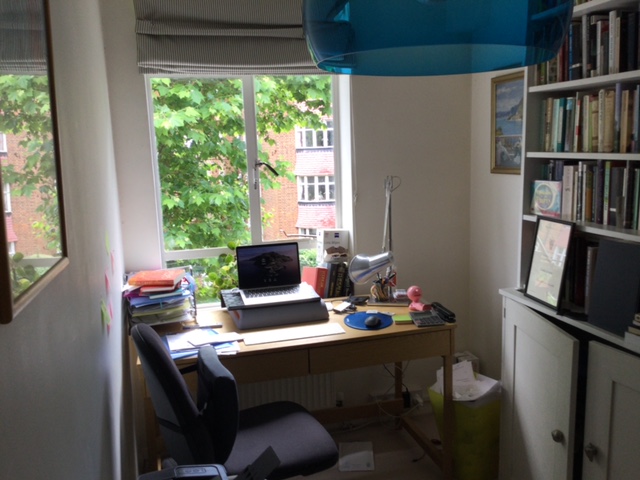
My life with Henry
My office (I never call it a study) measures 12 feet by six feet and was originally designed, I suppose, to be a child’s bedroom in that frenzied era of post-war reconstruction to house the families producing the baby boom generation. I could have been its first occupant for the block of flats was built in 1951 on the site of two bombed houses on a high hill in north London. Digging up the garden a neighbour found the rubble of the old bricks and chunks of mortar buried under a failing lawn. Staring out of the street-facing window forms a heavy portion of my working day. Outside on the pavement there is a mature London plane, that most urban of trees, a hybrid which thrives on resistance to pollution with a self-exfoliating bark. The plane tree now in high summer, a couple of years distant from the pollarder’s chainsaw, almost completely blocks the view of a recently-constructed block of flats further south at Finsbury Park, put up in the months just before Covid when developers thought everyone wanted gardenless apartments next to transport links. The empty flats in turn destroyed my perfectly-framed vista of the Shard, precise and gleaming in the distance like Mordor. I am very sad to have lost it. It would have comforted me during lockdown.
There really isn’t room to swing a cat in here, and I don’t mean that metaphorically. I sometimes imagine the trajectory of a swung cat. It wouldn’t be pretty.
The desk is nice, oak veneer and built for me by a man who, it turned out, normally designed prayer book storage for synagogues. It deserves better companions. It shares the room with plywood, white painted bookcases and cupboards brought from my old flat, a pair of library steps, a large box of paperbacks of my last novel, a wireless printer which has set its face against its own connectivity and refuses to recognise any device, and a Henry cordless vacuum cleaner. It’s not a room for idleness, there’s nowhere else to sit but the office chair I bought in 1998. The only pleasure in being in here is to write, you can’t use it for anything else apart from business office correspondence. It’s a bit like a prison cell. I suppose I should try to make it less comfortless. I never got it repainted when I moved here. It was just utilitarian brilliant white, and doesn’t deserve to be any thing better. I moved in on a very wet day and the removals men trod their wet boots into the carpet. I try not to look at it.
It must sound as if I hate the place. I don’t. Of course I long for French windows opening out to a rose garden, perhaps a coffee-making device of some kind, and an armchair to sit and read and edit. But that’s not going to happen. It is, after all, only a room and the only important thing that is supposed to happen involves one’s backside nailed to a chair and one’s hands in motion.
Linda Grant is the author of eight novels and five works of non-fiction. She has won the Orange Prize for Fiction, the South Bank Show Award, the Wingate Prize, and was shortlisted for the Man Booker Prize.